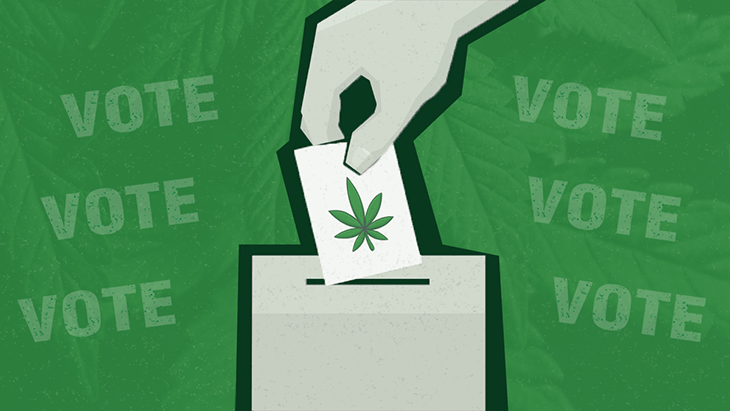
The Arkansas Supreme Court issued a decision today ensuring that a statewide measure seeking to legalize the adult-use marijuana market in Arkansas, will appear on the November ballot.
After state officials verified that proponents had gathered the requisite number of signatures from registered voters, the Board of Elections Commissioners voted to deny the measure’s proposed ballot title — opining that it did not accurately reflect the true scope of the initiative and that some elements of the proposal might be confusing to voters. The group Responsible Growth Arkansas, led by former Arkansas Democratic House minority leader Eddie Armstrong, filed a lawsuit with the state Supreme Court challenging that decision.
Today justices ruled in their favor, deciding, “Respondents and Intervenors have not met their burden of proving that the ballot title is insufficient. … It is for the people — not this court — to exercise the right to amend the constitution, and our court must continue to preserve this first power of the people of Arkansas by not supplanting their decisions with ours.”
Jax James, NORML’s State Policy Manager, applauded the Court’s decision. She said: “With voters favoring this measure by 2 to 1, we expect that Arkansas will join the 19 other states that have embraced this pragmatic cannabis policy. A regulated cannabis market allows for the reprioritization of law enforcement’s time and the growth of a new business market while protecting consumers.”
The ballot measure allows adults 21 and older to purchase and possess up to an ounce of cannabis. The initiative’s language does not permit for home cultivation, and it does not contain provisions to expunge past records or to provide for opportunities for social equity applicants.
Voters in Maryland, Missouri, North Dakota, and South Dakota will also decide on election day on similar adult-use legalization measures. In addition to these statewide efforts, voters in dozens of cities will be deciding on municipal ballot questions this fall. For instance, voters in five Texas cities – Denton, Elgin, Harker Heights, Killeen, and San Marcos – will decide on measures seeking to amend local laws curtailing police officers’ authority to “issue citations or make arrests for Class A or Class B misdemeanor possession of marijuana offenses” absent a defendant’s alleged involvement in a “felony level narcotics” case. Voters in several Ohio cities will also decide on municipal measures depenalizing activities involving marijuana possession.
In Rhode Island, voters in 31 towns will decide on measures determining whether or not to allow licensed cannabis retailers in their localities. Voters in cities in several other states, including Colorado, Michigan, and Montana, will decide on similar local ballot measures as well.
For a detailed breakdown of 2022 ballot initiatives, please visit NORML’s Election Central.











